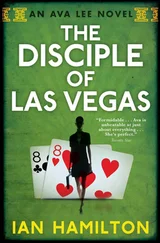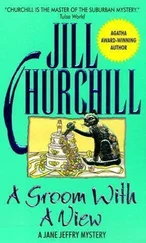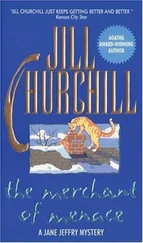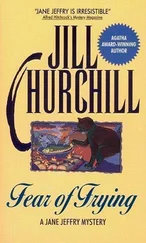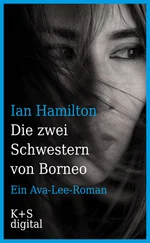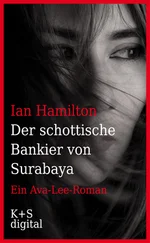Winston Churchill - Ian Hamilton's March
Здесь есть возможность читать онлайн «Winston Churchill - Ian Hamilton's March» весь текст электронной книги совершенно бесплатно (целиком полную версию без сокращений). В некоторых случаях можно слушать аудио, скачать через торрент в формате fb2 и присутствует краткое содержание. Год выпуска: 2018, Издательство: epubBooks Classics, Жанр: История, Прочая документальная литература, на английском языке. Описание произведения, (предисловие) а так же отзывы посетителей доступны на портале библиотеки ЛибКат.
- Название:Ian Hamilton's March
- Автор:
- Издательство:epubBooks Classics
- Жанр:
- Год:2018
- ISBN:нет данных
- Рейтинг книги:4 / 5. Голосов: 1
-
Избранное:Добавить в избранное
- Отзывы:
-
Ваша оценка:
- 80
- 1
- 2
- 3
- 4
- 5
Ian Hamilton's March: краткое содержание, описание и аннотация
Предлагаем к чтению аннотацию, описание, краткое содержание или предисловие (зависит от того, что написал сам автор книги «Ian Hamilton's March»). Если вы не нашли необходимую информацию о книге — напишите в комментариях, мы постараемся отыскать её.
London to Ladysmith
Ian Hamilton's March — читать онлайн бесплатно полную книгу (весь текст) целиком
Ниже представлен текст книги, разбитый по страницам. Система сохранения места последней прочитанной страницы, позволяет с удобством читать онлайн бесплатно книгу «Ian Hamilton's March», без необходимости каждый раз заново искать на чём Вы остановились. Поставьте закладку, и сможете в любой момент перейти на страницу, на которой закончили чтение.
Интервал:
Закладка:
'All day commandos have gone through the town, and one was seen on the plain coming in from Mafeking. One commando came up our way, and we were rather surprised that they made no attempt to shoot us. Indeed there was nothing to prevent them. Three prisoners came in. They were caught in or near Johannesburg. That town was officially surrendered at 10 A.M. this morning. The Boers intend making a sort of stand (one of their usual ten–minute affairs I suppose) at Irene, a place six miles south of Pretoria, and a fight is expected there to–morrow. Their line of flight is past our abode and Waterval, and I should not be surprised if, unable to face and shoot armed men, some of these foreign ruffians shoot a few prisoners.
'The town is evidently to be handed over quietly. The "Volksstem" is still covering a sheet of paper with print, but seems to take not the slightest interest in the war. They speak of giving up Pretoria as one of our papers might of a concert. Well, I suppose it will come at last, but I shall heave a sigh of relief when it does!
' June 1*st.*—No sign of the British! But we expect to hear guns to–morrow. There are plenty of rumours about—Roberts captured, French killed, etc. There was a good deal of looting in the town yesterday, and five men were shot. Our hopes of a few days ago have been somewhat damped, and most of us put our release down at a week hence.
'The "Volksstem" is remarkable. The editor is evidently wishful to avoid his tarring and feathering, and scarcely speaks of the war at all.
' June 3*rd.*—I have almost given up looking forward to our release, and have fallen back into the ordinary monotonous life. No guns have been heard, and therefore no serious fighting can have taken place anywhere near Pretoria. Rundle has been reported as having received a check in the Free State, and Lord Roberts is said to be still in Johannesburg; otherwise there is no news at all. Botha has taken matters into his own hands, has kicked out the officials appointed by Kruger, chosen a committee of his own, and has arranged the defence of the positions outside the town. He has therefore made himself practically President of what remains of the Transvaal. Kruger went off with a million of hard gold, paying the Government officials with dishonoured cheques on the National Bank, from which he has removed all the money. Every one of his ministers thirsts for the old man's blood, and perhaps it were best for him to go further than Middelburg.
' June 4*th.*—At about 8.30 this morning firing was heard at no great distance, in the south–west direction—field–guns, "pom–poms," Maxims, and even musketry. At about nine o'clock a shell was seen to burst on an earthwork on a ridge of hills south of the town. Field–glasses and telescopes were immediately brought out, and we were well entertained for the rest of the day. Shrapnel burst all along the ridges, and presently lyddite shells were planted on the hills. The firing seemed very unmethodical, and the Boers made little or no reply. On the western kopjes shrapnel was seen bursting all over the place, and we expected the Infantry to attack them. But the lyddite shells were certainly the most interesting. They burst with a tremendous noise, throwing up clouds of brownish earth. For some time the forts seemed the mark our gunners were aiming at, and these costly erections certainly received their share—four shells pitching well inside the west fort; but, later, the shells were directed on the eastern outskirts of the town. Whether these were intended for the railway station, we could not make out; but, otherwise, they seemed to have no object. At about 4.30 the Boers were seen leaving the western ridges and trekking at a remarkable pace across the plain, disappearing along the northern road. The day's action was ended by a kind of feu de joie of lyddite shells, which struck the two forts and the surrounding hills. Then peace ensued. The last few shots seemed to have been fired by guns which were much closer than at the commencement of the bombardment, and the flight of the projectiles, which we could distinctly hear, passed from west to east, so that we hope our troops have occupied the hills on the west.
'The hills are burning to–night, and the scene is strangely illuminated in honour of our approaching rescue.
' June 5*th.*—A day of strangely mingled hopes and fears. This morning at about 1.30 the Commandant awoke us and ordered us to pack up at once and prepare to march to the railway, whence we were to be transported by train down the Delagoa Bay line to some station beyond Middelburg. All were filled with consternation. To be hurried away when release was so near at hand seemed too awful. Words cannot express my feelings. At last we decided to refuse to go. Let them massacre us if they dared. We reminded the Commandant of the promise made to the officers the week before that if they restrained the men in Waterval neither they nor the men should be transported. The Commandant replied that he had his orders and must execute them, and he rose to leave the building, but we refused to let him or his lieutenant go, and held them both prisoners. The Commandant said that the guards would soon come in to rescue him, but he eventually promised to do his best to save us from being deported, if we set him free. Then, by Colonel Hunt's advice, for we did not know when a commando might appear, we returned to bed—you cannot shoot men in their beds. And so passed the anxious hours away till dawn. With the first streaks of daylight we scanned the hills anxiously for the British troops. We could see lines of men moving on the race–course, but it was impossible to make out what they were. Presently, at about half–past eight, two figures in khaki came round the corner, crossed the little brook and galloped towards us. Were they Boers come to order our removal?—The advance scouts, perhaps, of a commando to enforce the order! or were they our friends at last? Yes, thank God! One of the horsemen raised his hat and cheered. There was a wild rush across the enclosure, hoarse discordant yells, and the prisoners tore like madmen to welcome the first of their deliverers.
'Who should I see on reaching the gate but Churchill, who, with his cousin, the Duke of Marlborough, had galloped on in front of the army to bring us the good tidings. It is impossible to describe our feelings on being freed. I can scarcely believe it, after seven months' imprisonment; the joy nearly made up for all our former troubles, and, besides, the war is not yet over.
'To close the scene we hoisted the Union Jack which Burrows (one of the prisoners) had made by cutting up a Vierkleur, on the staff whence the Transvaal colours had so long reminded us of our condition. I will not write about the triumphal entry of Lord Roberts and the army into Pretoria, because that has been already told by so many others.
'The Dogman and Cullingworth shared our good fortune, both being speedily released from the gaol where they had languished since their attempt to get through to the British lines, and with this happy fact let me end my record of so many weary days passed in uncertainty, disappointment, and monotony, but borne, I hope, with patience, and ending at last in joy.'
Chapter XVII
Action of Diamond Hill
Pretoria: June 14.
The feeble resistance which the Boers offered to our advance from Bloemfontein favoured the hope that with the fall of Pretoria they would sue for peace, and after the almost bloodless capture of the town there was a very general tendency to regard the war as practically over. The troops who had been marching for so many days with Pretoria as their goal, not unnaturally hoped that when that goal was achieved a period of rest and refreshment would be given them. But the imperious necessities of war demanded fresh efforts.
Читать дальшеИнтервал:
Закладка:
Похожие книги на «Ian Hamilton's March»
Представляем Вашему вниманию похожие книги на «Ian Hamilton's March» списком для выбора. Мы отобрали схожую по названию и смыслу литературу в надежде предоставить читателям больше вариантов отыскать новые, интересные, ещё непрочитанные произведения.
Обсуждение, отзывы о книге «Ian Hamilton's March» и просто собственные мнения читателей. Оставьте ваши комментарии, напишите, что Вы думаете о произведении, его смысле или главных героях. Укажите что конкретно понравилось, а что нет, и почему Вы так считаете.

